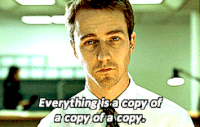8 Mistakes Newbie Writers Make
Hi friends, happy Tuesday! Today we’re going to talk about 8 mistakes that newbie writers make when they’re first starting out. Many of these mistakes are ones that I made when I first started writing.
If you'd rather watch the video on this topic, feel free to click play below. Otherwise, read on!
Ready? Let's do this.

1. Failing to outline· I know all the pantsers out there are probably rolling their eyes right now, but outlining and planning ahead are two critical things that newbie writers really need to consider. You might have a million ideas floating throughout your mind and, as a newbie writer, it can be extremely difficult to translate those thoughts into a coherent, well-versed story. This is where outlining comes in handy. Even if it’s a sparse outline with just the beginning, middle, and end, at least you know where to start, what the midway point is, and how your story will end. As you get more comfortable with writing, you may end up not needing an outline and can just pants your way through your story. But for beginners, I highly recommend planning out your story, chapter by chapter, in a detailed outline.

2. Being indecisive on POV, or point-of-view· There are four major points of view: 1st person (I); 2nd person (you); 3rd person (Joey); and omniscient (author’s, sometimes used for setting scene but keeps reader from getting into the story). For newbie writers, third person POV will probably be easiest and the least confusing to use for fiction stories. First person is another POV that is often used, however it can be more difficult to write because it requires keeping the tenses straight throughout your book. My first series, The Alpha Drive, is written in third person POV, whereas my new dark fantasy series is in 1stperson POV. I started out with third person POV because it fit The Alpha Drive trilogy and the story I was trying to convey, whereas first person POV fits my dark fantasy storyline and really draws the reader in. Ultimately, the POV you decide to write in depends on the genre of your book and how you think your story will best be represented.
· Quick tip: Once you choose your POV, DO NOT CHANGE IT! Trust me, it is such a pain to get halfway through your novel to realize that you actually want to switch from 1st to 3rd person. Because the tenses are completely different, you’ll have to comb through your manuscript line by line and edit 95% of the sentences. There is no quick fix to do this in Word or any other writing program that I know of, so make the POV decision upfront and stick with it.

3. Imbalance of telling and showing· The art of writing lies in a writer’s ability to SHOW their readers the world and people they’ve created. Anyone can tell you about Joey taking his boat out on the ocean in the middle of a summer day, but it takes a writer to put you inside of Joey’s mind, feeling the stickiness of the humidity in the air, the smell of salt and seaweed, the summer sun beating down on his already bronzed skin, his shoulders tingling from the mix of sunscreen and heat. Did you picture that?
· When you “tell”, your readers actually distance themselves from the story, whereas “showing” draws them in close. There is a delicate balance here, so you have to pick out what information can be told and what information needs to be shown. If you find yourself providing large chunks of explanation, then you are telling and not showing. If your story is weighed down with too much telling, then find a way to turn those explanations into scenes and decide which characters will best portray what you’re trying to get across. Showing keeps the readers engaged; telling pushes them away.

4. Poor use of dialogue· We’ve all read it. The clumsy dialogue that sounds unnatural and the multitude of characters who all sound exactly the same. You can’t tell them apart! As a newbie writer, it’s important to remember that dialogue should be used to convey important information and enhance your characters. Ultimately, you want your dialogue to show your readers something extra, whether it’s a window to your characters’ souls, to heighten tension, or to reveal a twist in the plot. Your dialogue should also SHOW and not TELL. Here’s an example of dialogue that tells : “You can’t be serious,” she said in astonishment. And here’s that same example of dialogue that shows : She dropped her spoon, eyes wide. “You have to be kidding me.” Can you hear the difference?
 5. Lack of Editing· If you think that once you finish your first draft, all you’ll have to do is a quick proofread to look for spelling errors and typos, I hate to break it to you, but you are sorely mistaken. Editing is critical and it’s a lot more detailed and complex than just scanning your work for typos. It’s best to prepare yourself for the possibility of cutting chunks of text, removing entire chapters, writing new scenes, and completely re-writing old ones. Here’s some advice: When you think your story is the best you can make it, put it aside and leave it for as long as possible – a minimum of 2 weeks, the longer the better. Then come back and read it out loud. Your errors will literally leap off the page and it will make the editing process so much clearer and easier.
5. Lack of Editing· If you think that once you finish your first draft, all you’ll have to do is a quick proofread to look for spelling errors and typos, I hate to break it to you, but you are sorely mistaken. Editing is critical and it’s a lot more detailed and complex than just scanning your work for typos. It’s best to prepare yourself for the possibility of cutting chunks of text, removing entire chapters, writing new scenes, and completely re-writing old ones. Here’s some advice: When you think your story is the best you can make it, put it aside and leave it for as long as possible – a minimum of 2 weeks, the longer the better. Then come back and read it out loud. Your errors will literally leap off the page and it will make the editing process so much clearer and easier.
6. Repetition· During our writing journeys, it’s common for us to develop “pet phrases” or “pet sayings”, which are little terms or quirks associated with certain settings or characters that are repeated many times throughout our manuscript. This unnecessary repetition can be found within sentences, paragraphs, pages, chapters, and the overall book. Chances are, you won’t even realize you’ve done this, which is why editing is so important. Repetition should be used to place emphasis on certain things – just be careful you don’t overdo it.

7. Not checking for plot holes· Your plot is the underlying basis of your book. Without it, you have no story, and no story means no book. The concept of a plot hole is relatively broad – it can encompass everything from the slow start, a sagging middle section, uneven pacing, unreliable details, and using gimmicks as hooks. When it comes to plots, especially complicated ones, planning or using some sort of timeline can really help you find the holes before you even put pen to paper, or in most cases nowadays, fingers to keyboard. If you’re a pantser and not a fan of outlines, then try this instead: Write your entire story, then plot out major events in bullet point format AFTER you finish your manuscript. This will give you an eagle’s eye overview of everything you’ve written so you can sense check your work and make sure you didn’t miss anything critical to the development of the plot.

8. Being impatient & expecting miracles· Coming up with story ideas takes time. Writing a book takes time. Editing a book takes time. Building your author platform takes time. The whole writing journey takes time. So don’t be impatient with yourself or your work. Being impatient means that your work is at higher risk for error, and trust me, you do not want to release something into the world, especially your bookbaby, your pride and joy, if it’s riddled with errors. Strive to put your best work out there and understand that it could take months, even years, to get there. Be patient with yourself.
· In addition, don’t expect to become a bestseller overnight. Hell, selling even 100 books your first year will seem like an insurmountable task at one point or another. You’ve put in the work to write the book, and now you’ll have to put in even more work to market it and get it to the right audience. Again, this will take time and it will not happen overnight. Don’t expect to release your book and then the next day, wake up to find you’ve sold 1,000 copies. If this happens for you, then that’s amazing and we need to talk, but most likely, it won’t. And that’s okay. We all have different journeys. So set realistic expectations and continue to work hard, just like you’ve been doing all along. You’ll get to where you want to be eventually. It just takes time.

So there you have it, 8 common mistakes newbie, and even seasoned, writers make. That’s all that I have for you guys today. Thanks for reading! Don't forget to check out my debut novel, THE ALPHA DRIVE, on your way out. As always, I will see you in the next post!

Until next time,
 source 1
source 1source 2
Published on September 26, 2016 16:00
No comments have been added yet.



